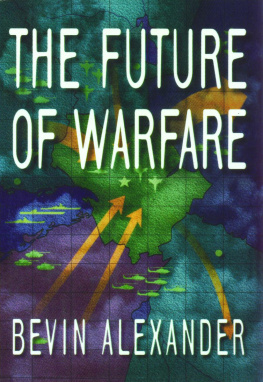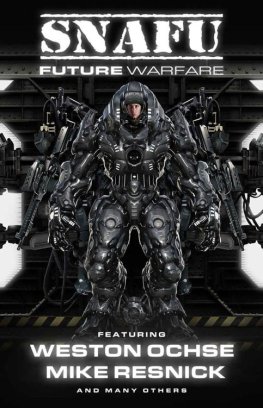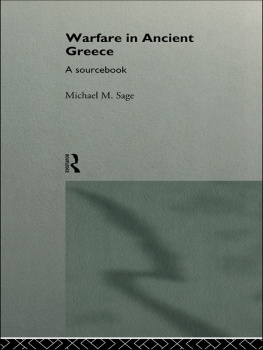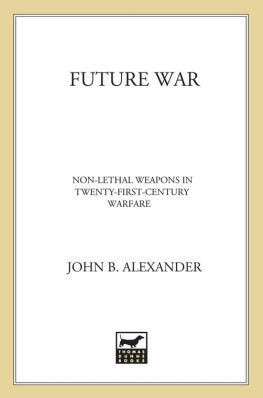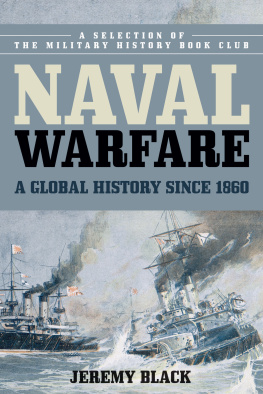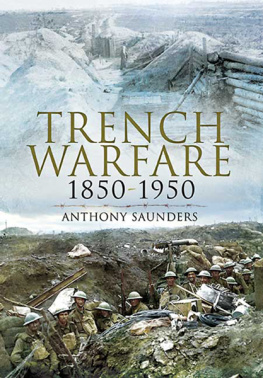Alejandro Bevin - Future of Warfare
Here you can read online Alejandro Bevin - Future of Warfare full text of the book (entire story) in english for free. Download pdf and epub, get meaning, cover and reviews about this ebook. year: 1980, publisher: W. W. Norton and Company, Inc., genre: Politics. Description of the work, (preface) as well as reviews are available. Best literature library LitArk.com created for fans of good reading and offers a wide selection of genres:
Romance novel
Science fiction
Adventure
Detective
Science
History
Home and family
Prose
Art
Politics
Computer
Non-fiction
Religion
Business
Children
Humor
Choose a favorite category and find really read worthwhile books. Enjoy immersion in the world of imagination, feel the emotions of the characters or learn something new for yourself, make an fascinating discovery.
- Book:Future of Warfare
- Author:
- Publisher:W. W. Norton and Company, Inc.
- Genre:
- Year:1980
- Rating:4 / 5
- Favourites:Add to favourites
- Your mark:
- 80
- 1
- 2
- 3
- 4
- 5
Future of Warfare: summary, description and annotation
We offer to read an annotation, description, summary or preface (depends on what the author of the book "Future of Warfare" wrote himself). If you haven't found the necessary information about the book — write in the comments, we will try to find it.
With the planet no longer cleanly divided into us and them, leaders are distracted by a thousand conflicting claims and ambitions. We inhabit a much more disorderly world. Disputes within and between nations are frequently violent, divisive, and dangerous... --from The Future of Warfare
Future of Warfare — read online for free the complete book (whole text) full work
Below is the text of the book, divided by pages. System saving the place of the last page read, allows you to conveniently read the book "Future of Warfare" online for free, without having to search again every time where you left off. Put a bookmark, and you can go to the page where you finished reading at any time.
Font size:
Interval:
Bookmark:
Korea: The First War We Lost
The Strange Connection: U.S. Intervention in China 19441972
Lost Victories: The Military Genius of Stonewall Jackson
How Great Generals Win

NEW YORK LONDON
Copyright 1995 by Bevin Alexander. All rights reserved .
T HE TEXT OF THIS BOOK is composed in Galliard with the display set in Garamond Light Condensed..
Library of Congress Cataloging-in-Publication Data
Alexander, Bevin.
The future of warfare / Bevin Alexander.
p. cm.
Includes bibliographical references and index.
1. United StatesMilitary policy. 2. Low-intensity conflicts (Military science) 3. Balance of power. 4. Guerrilla warfareCase studies. I. Title.
UA23.A547 1995
355.033573dc20
94-35976
ISBN 978-0-393-33240-7
W. W. Norton & Company, Inc., 500 Fifth Avenue, New York, N.Y. 10110
W. W. Norton & Company Ltd., 10 Coptic Street, London WC1A 1PU
W HEN I COMMENCED WRITING this book, I was well aware of the famous line from the English economist, Lord Keynes: The inevitable never happens. It is the unexpected always. No one, of course, can predict the future of warfare with certainty. Yet great events in the late twentieth century have given us reason to believe that we can prophesy with some accuracy what sorts of conflicts are likely to occur, how wars are likely to be fought, and which ones will involve the United Statesat least for a generation ahead.
This book examines the degree to which changes in war brought on worldwide by theory and practice during this century will affect war in the next century. It also studies the influence technology has had and may have on military strategy, battle tactics, and unit structure. But, since the greatest challenges will be borne by the United States, the last superpower, this book focuses primarily on what it will encounter and the sorts of wars it will have to fight in the decades ahead.
With the disintegration of the Soviet Union in the early 1990s, the discipline that had held the world firmly in two antagonistic ideological camps abruptly snapped. For a euphoric moment much of the world believed that the principal divisions on the planet had been healed and that we could look forward to a peaceful, cooperative future.
We quickly learned how wrong we were. Ethnic, religious, and nationalistic conflicts that had been suppressed for generations by East-West bipolarity suddenly reemerged throughout the world, especially in the former Soviet Union and among its erstwhile satellites. Witches caldrons that had been stewing disagreements, rivalries, and hates, sometimes for centuries, abruptly boiled over. The list of social upheavals seems endless. Among others are clan, tribal, and ethnic battles in Africa; religious disputes in Africa, Asia and Europe; racial collisions in South Africa; deep divisions between rich and poor in Latin America, and ethnic conflict in the former Yugoslavia, Turkey, Iraq, Azerbaidzhan, Georgia, Spain, and elsewhere.
The United States will avoid most of these largely internecine conflicts. It also will avoid wars over political ideology. The repudiation of Communism by nearly all peoples, including its tacit rejection by the Chinese, has left no ideology strong enough to challenge capitalism and market economies.
Russia constitutes no greater danger than any other great power. The emergence of jingoistic elements there have aroused fears of aggression. Russia may project itself more strongly onto the world stage, but few Russians have ambitions to expand out of northern Eurasia.
It is inconceivable that any nation controlled by sensible rulers will resort to nuclear warfare. Use of a nuclear device likely would bring instant retaliation which could accelerate beyond human capacity to control, making much of the earth uninhabitable.
An irrational dictator might use the bomb, and theres the chance that a terrorist organization might secure a device and plant it somewhere, perhaps in a large city. This would bring on a catastrophe, but rational rulers would not automatically resort to nuclear holocaust. Instead, likely using precision strikes, nuclear or otherwise, they would attempt to destroy the dictator, his weapons and his scientists, or they could try to destroy the places in other countries where the guilty terrorists find refuge. Retribution is so certain that only a completely unstable, nihilistic ruler would risk his own and his countrys destruction. As a consequence, nations are likely to face only conventional, nonnuclear wars.
Nevertheless, the United States will encounter the continued threat of war. The principal cause will be the revival of aspirations for power by avaricious nations or ambitious leaders. Lust for power has been the bane of mankind at least from Neolithic times. Desire for power is closely tied to economic issues. Disputes over possession of the earths riches and resources have always been the primary reasons for wars. For nearly fifty years the East and West held economic conflicts in check by dividing the worlds resources between them. With the end of the Cold War this expedient lost its validity.
BEVIN ALEXANDER
T HE UNITED STATES is in a new world that, despite appearances, is much like the old. Its only truly dangerous enemy for nearly half a century, the Soviet Union, has ceased to exist both as an empire and as a threat. The remaining dangers to peace are painful and depressing, but minor. Nevertheless, American strategic concerns have remained the same. The United States has the identical obligation that has molded its history from the beginning: security of American territory, people, economy, and way of life.
The United States, as the only surviving superpower, has the strength to guard its security, as well as to influence profoundly the kind of world all people will inhabit in the future. This world will determine what sorts of wars the United States will fight, and how it will fight them.
Although the planet today seems awash with internal and external conflict, only two principal types of international dangers are likely to threaten American security: (1) attempts by one or more powers to seize vital industrial commodities like oil, and (2) attempts by some power to gain hegemony or dominance in Eurasia, or in part of it.
Neither danger is imminent, but either could occur. Either would probably require the projection of American power onto another continent. The United States may get involved in other types of conflict, but these two are what the nations military must be prepared to confront.
The fear that a power would gain hegemony in an important part of Eurasia has guided politics and generated wars for more than three centuries. It forced Britain, Austria, Russia, and Prussia to battle Napoleon Bonaparte; required Britain, France, Russia, and the United States to challenge Germany in two world wars; led to a war with Japan; spawned the anti-Soviet alliance system in the Cold War, and produced wars against three supposed surrogates of the Soviet Union: North Korea, China, and North Vietnam.
It is a permanent danger because a regional or continental hegemonic power can create a global navy and threaten the United States directly.
From the late 1600s to World War I, Britain sought, by means of a balance of power in Europe, to prevent the rise of a continental navy that could contest the seas with the Royal Navy. Britain tried, in most cases with success, to aid weaker powers in their conflicts with the stronger, and thereby keep the European states so embroiled in indecisive disputes with each other that none had sufficient resources to create a navy capable of defeating the British fleet. Napoleons challenge came closest to success, but Horatio Nelson destroyed his fleet at Trafalgar in 1805 and guaranteed that the French empire would not extend overseas. When Napoleon failed in his invasion of Russia in 1812, the collapse of his empire began.
Font size:
Interval:
Bookmark:
Similar books «Future of Warfare»
Look at similar books to Future of Warfare. We have selected literature similar in name and meaning in the hope of providing readers with more options to find new, interesting, not yet read works.
Discussion, reviews of the book Future of Warfare and just readers' own opinions. Leave your comments, write what you think about the work, its meaning or the main characters. Specify what exactly you liked and what you didn't like, and why you think so.

